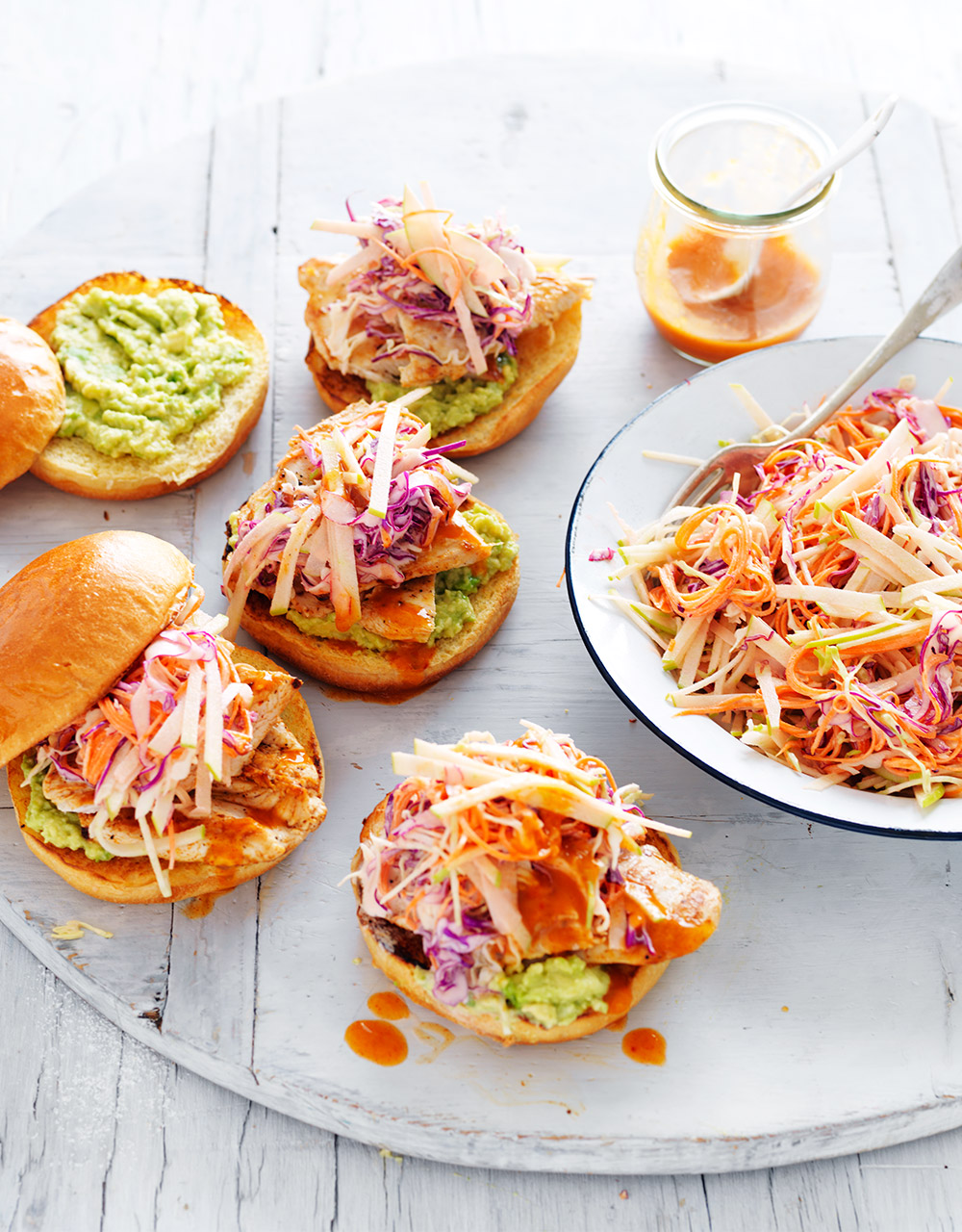
Prep: 30 mins
Cook: 5 mins
4
Asian coriander pesto with salmon kebabs
Enjoy the bright flavours of Asian cuisine with this delicious Asian Coriander Pesto with Salmon Kebabs recipe. These juicy kebabs, inspired by classic Asian spices such as coriander, ginger, and sesame oil, combine freshness and zest, making them ideal for an outdoor summer barbeque or a special family dinner.
750g thick Atlantic salmon fillets
1 tbs olive oil
2 tbs lime or lemon juice
Baby Asian green salad, steamed jasmine rice and lime wedges, to serve
ASIAN CORIANDER PESTO
2 cups firmly-packed coriander leaves (about 1 large bunch)
1-2 (to taste) small red bird’s eye chilli, deseeded and chopped
1⁄3 cup roasted cashews
1 garlic clove
1 tsp fish sauce
1 tbs liquid or grated palm sugar
11⁄2 tbs lime juice
1⁄2 cup olive oil
STEP 1 Soak bamboo skewers in cold water for 10 minutes. Remove skin and trim salmon, cut into 2-3 cm cubes. Place in a shallow dish, sprinkle with olive oil and lime or lemon juice and season with salt and pepper. Toss to combine and set aside for 10 minutes.
STEP 2 Meanwhile, to make Asian coriander pesto, place coriander, chilli, cashews, garlic, fish sauce, palm sugar and lime juice in a food processor. Process until finely chopped. With the motor running, gradually add oil and process until well combined. Season with salt and pepper to taste. Adjust seasonings to suit your taste.
STEP 3 Thread salmon onto skewers. Heat a greased barbecue plate or non-stick frying pan over medium heat. Cook salmon kebabs, turning occasionally, for 4–5 minutes until salmon is almost cooked through. Serve salmon with Asian coriander pesto and an Asian green salad, jasmine rice and lime wedges.
Nutritional Facts
Coriander: High in antioxidants and vitamins A, C, and K.
Salmon: Rich in omega-3 fatty acids, high-quality protein, and vitamins D and B12.
Garlic: Contains allicin, which has antimicrobial properties.
Lime juice: High in vitamin C, aids digestion.
Peanuts: Provide healthy fats, protein, and fiber.
Tips and Tricks
Fresh coriander is essential; alternatively, basil or parsley can provide a similar herbaceous flavor. Use sustainable fish alternatives like trout or sea bass if salmon is unavailable.








